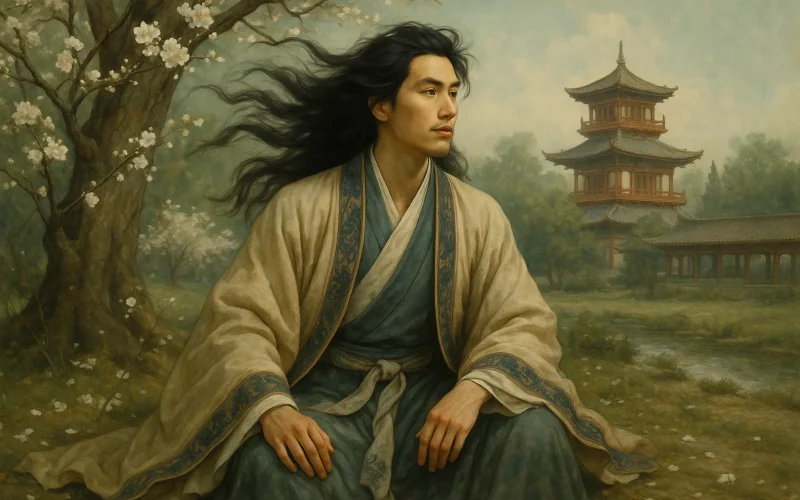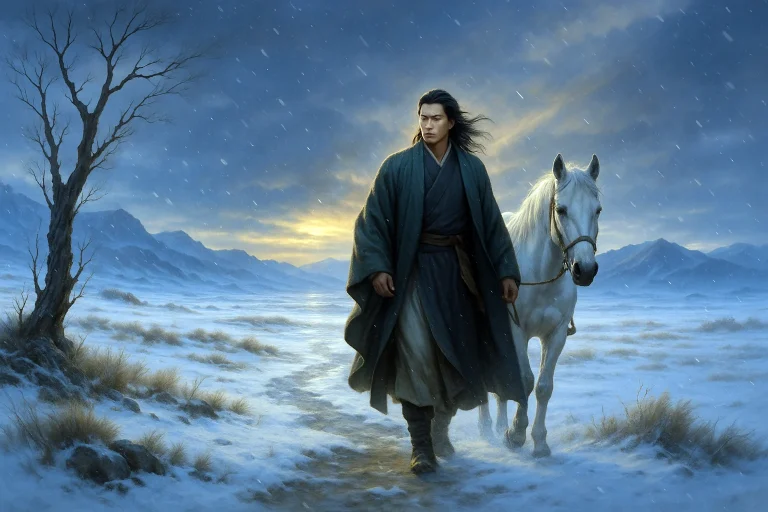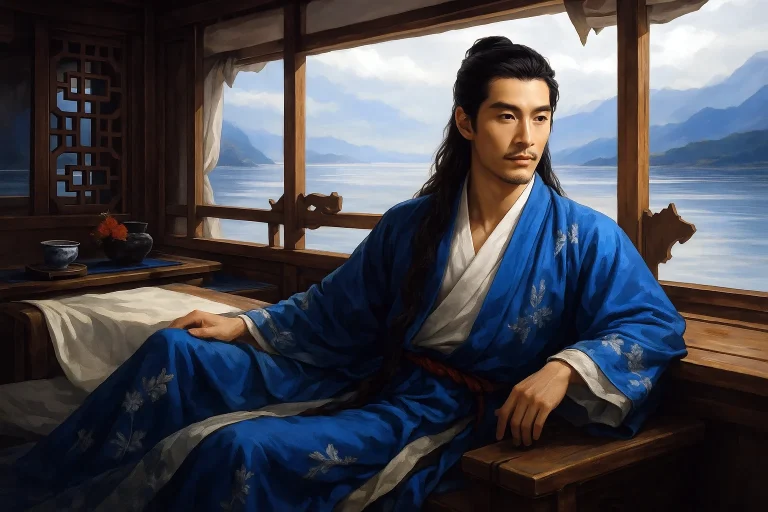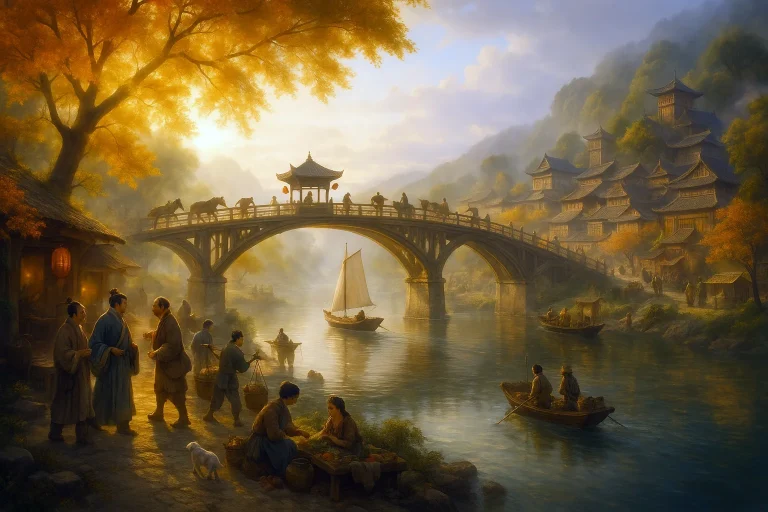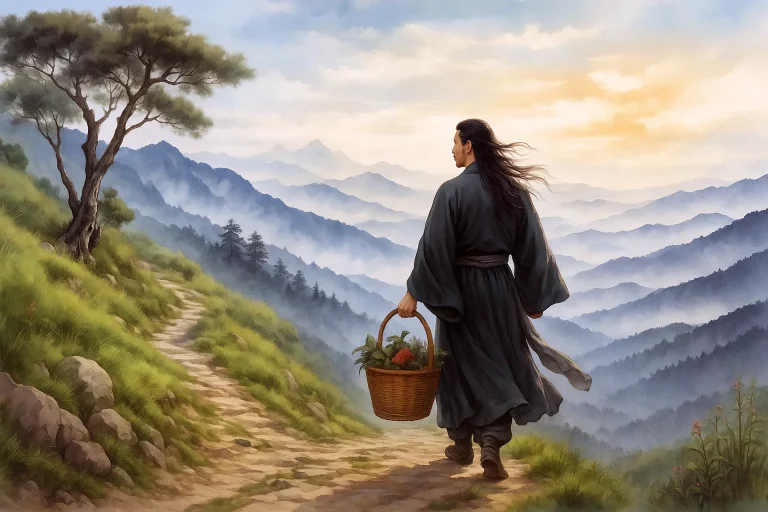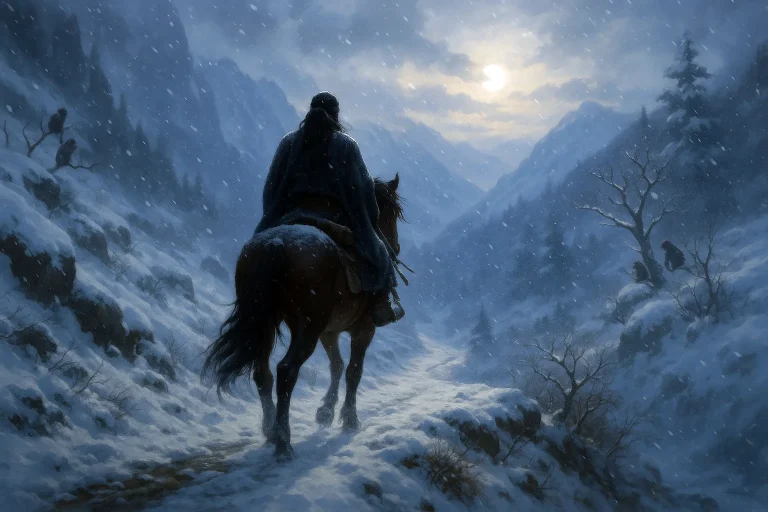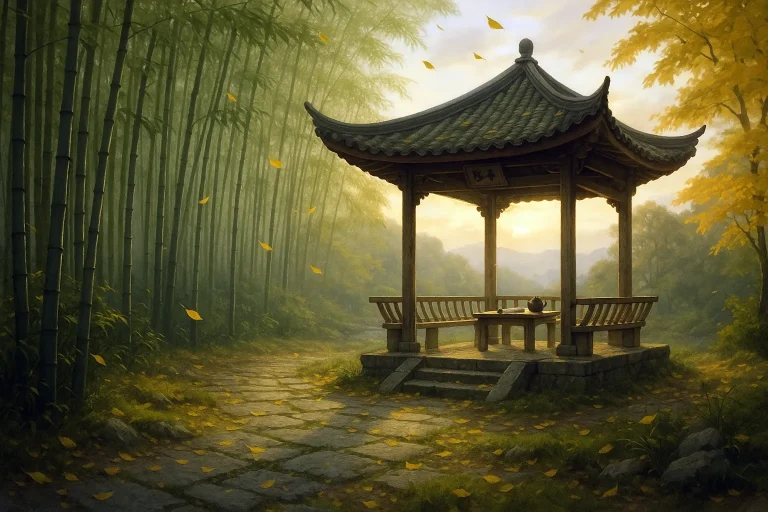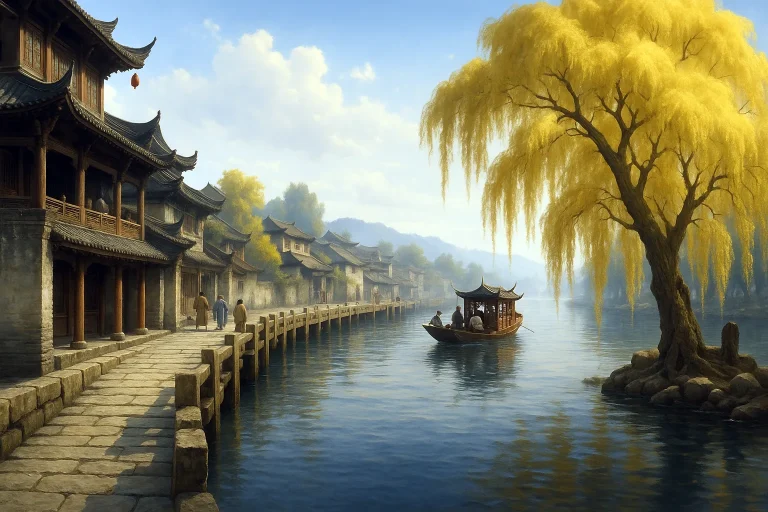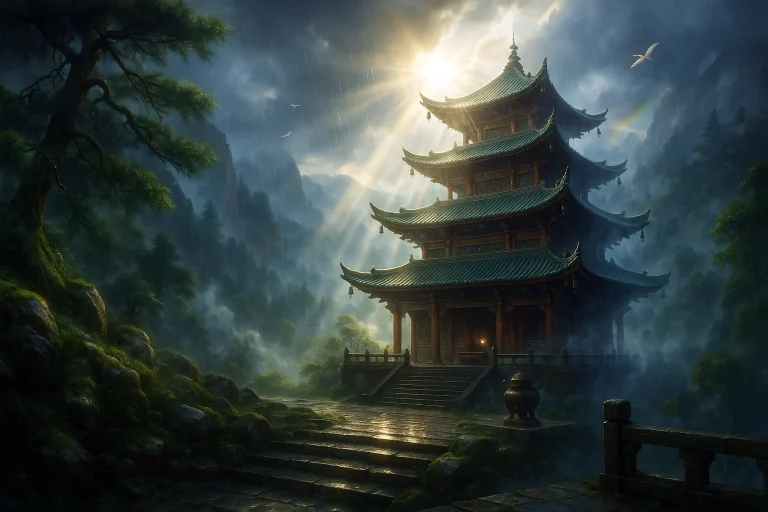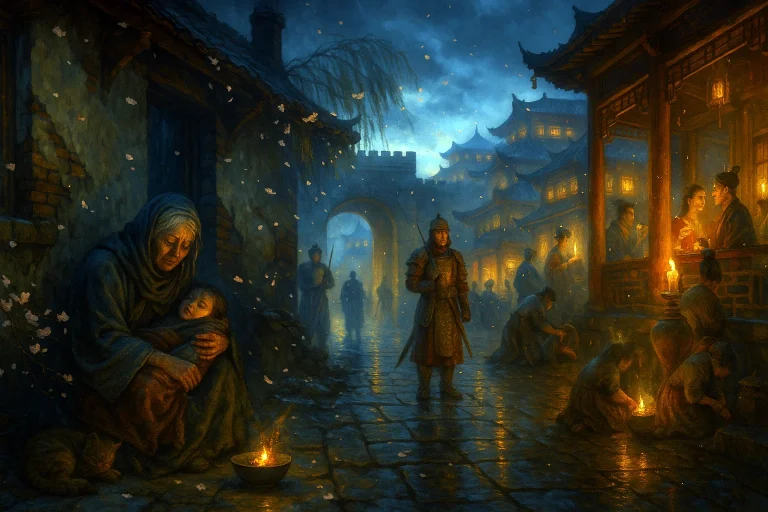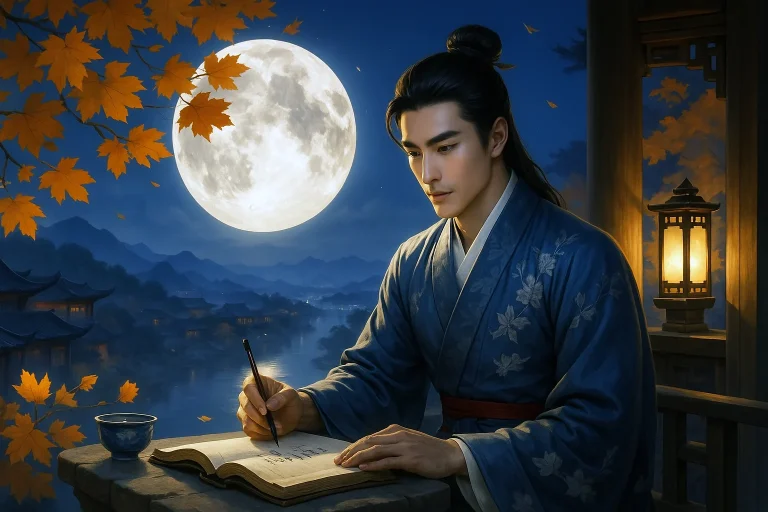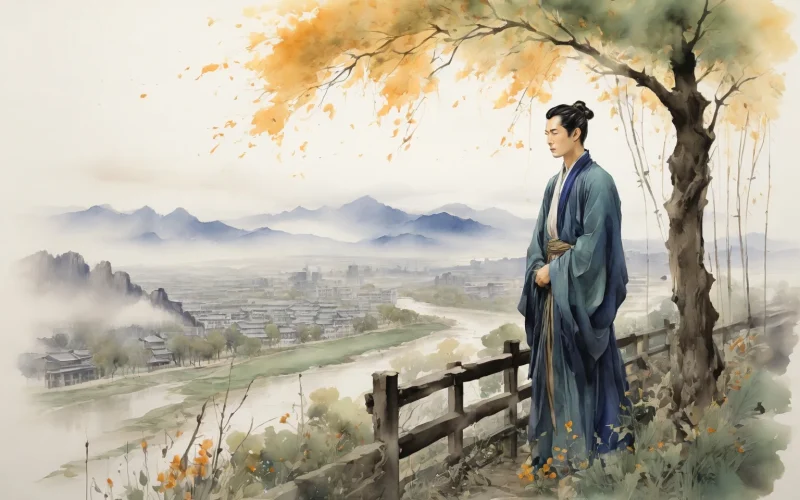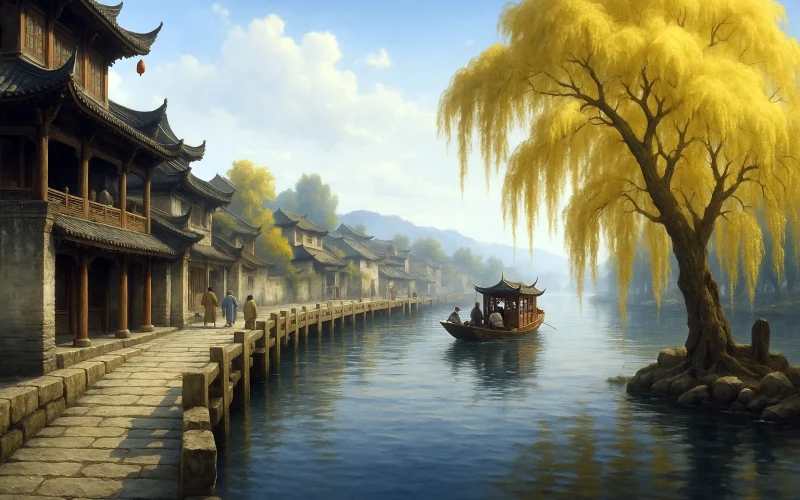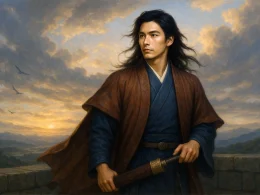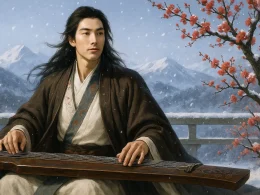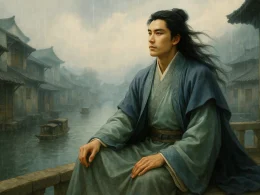Han Hong (韩翃, dates unknown), courtesy name Junping, was a native of Nanyang (near present-day Nanyang, Henan). He earned the jinshi degree in 754 (the 13th year of Tianbao era). Twice appointed as military governor's aide (successively serving under Hou Xiyi of Ziqing and Li Mian of Xuanwu), he eventually rose to the position of Zhongshu Sheren (Secretariat Drafter). As one of the "Ten Literary Masters of Dali era (766-779)", his poetic fame peaked when Emperor Dezong personally appointed him as Zhizhigao (Edict Drafter) after admiring his celebrated line "Spring city where flying flowers roam everywhere" (recorded in Meng Qi's Ben Shi Poetry). Specializing in farewell poems, Han enjoyed significant contemporary renown. The Complete Tang Poems preserves three volumes of his works.
Major Works
Biographical Overview
Born to a mid-ranking official family, Han displayed exceptional literary talent from youth. Historical accounts describe him as principled and ambitious, with strong patriotic convictions. After obtaining the jinshi degree during Dali era, he became prominent among the "Ten Masters", alongside Lu Lun, Qian Qi, and Sikong Shu.
His career included posts as Investigating Censor and Regional Military Commissioner, with frontier postings that provided firsthand experience of border defense. During Zhenyuan era (785 onwards), his participation in court affairs as Investigating Censor enhanced his reputation. Though never reaching high office, he commanded deep respect among scholars. Living through the post-An Lushan Rebellion political transition, his poetry reflects the conflict between scholar-official ideals and the Tang dynasty's decline.
Literary Achievements
Han Hong distinguished himself primarily in frontier poetry (biansai shi), becoming the most representative frontier poet among the Ten Masters and a crucial bridge between High Tang's heroic frontier tradition and Mid-Tang's more reflective approach. His style blended Gao Shi and Cen Shen's vigorous grandeur with Du Fu's social consciousness, evolving into a terse,含蓄 (reserved), and thematically rich manner.
His frontier poems authentically depict soldiers' hardships and national security concerns through compact language, exhibiting idealistic patriotism. Unlike Gao and Cen's celebratory or expansive treatments, Han's approach leans toward somber realism with historical contemplation. Additionally, his regulated verse (lüshi), especially five-character form, demonstrates technical mastery and earned him recognition as a "regulated verse virtuoso."
Poetic Style
- Strong Frontier Themes with Desolate Grandeur
His widely acclaimed Frontier Songs series masterfully depicts the harsh landscapes of northern borders and soldiers' emotions. Through quintessential imagery like "geese soaring under moonless night," "Jade Gate Pass," and "Ji Gate," he creates atmospheres of desolate tension. - Concise Language with Profound Emotion
Han's poetry employs plain yet natural diction, avoiding ornate embellishment while conveying deep sentiment through economical phrasing. His frequent use of "night" to express frontier solitude, and elements like "wind," "snow," and "war horns" to heighten atmosphere, forms remarkably cohesive poetic tableaux. - Historical Consciousness and Loyalist Spirit
His works consistently engage with contemporary military-political realities, expressing compassion for frontier civilians and soldiers' hardships, thereby demonstrating a profound sense of historical responsibility. - Subtle and Graceful Lyricism
Though best known for frontier poetry, he also produced numerous landscape poems venting career frustrations and unrecognized talent. These pieces feature restrained melancholy—mournful yet not despairing—with delicately nuanced expressions.
Representative Works
Han's most celebrated pieces are from his Frontier Songs series:
- 《塞下曲》其一
月黑雁飞高,单于夜遁逃。欲将轻骑逐,大雪满弓刀。
These 28 characters create an intensely cinematic chase scene, hailed as the "quintessential frontier quatrain" for its heroic tension. - 《塞下曲》其二
林暗草惊风,将军夜引弓。平明寻白羽,没在石棱中。
This captures a general's nighttime precision, using the arrow image to epitomize military resolve.
These poems transcend battlefield descriptions to reveal soldiers' ethos and frontier adversity through action and environment, extending High Tang's heroic spirit while introducing Mid-Tang's sober realism. Han's influence permeates later poets like Han Yu, Li He, and Du Mu.
Though politically inconspicuous, Han holds significant place in Tang poetry history, particularly for frontier verse. His vigorous, emotionally weighty, and structurally disciplined works represent a vital continuation of High Tang ideals into Mid-Tang. The Complete Tang preserves numerous frontier poems that serve as valuable literary-historical records of Mid-Tang military life. Qing critic Shen Deqian's assessment—"sparse words, rich meaning; forceful language, deep feeling"—perfectly encapsulates his art.






